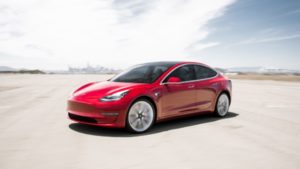The Inflation Reduction Act of 2022 (IRA) made several changes to the tax credit for qualified plug-in electric drive motor vehicles, including adding fuel cell vehicles to the tax credit (New Clean Vehicle Credit). The IRA also added new credits for previously owned clean vehicles (Previously Owned Clean Vehicle Credit) and for commercial clean vehicles (Qualified Commercial Clean Vehicles Credit).
Below are a few FAQs about how the IRA revises the credit available for new clean vehicles for individuals, as well as information on the credit available for previously owned clean vehicles for individuals. 
What is a new clean vehicle for purposes of the New Clean Vehicle Credit?
A new clean vehicle is a clean vehicle placed in service on or after January 1, 2023, that is acquired by a taxpayer for original use. In addition, to qualify for the credit, the vehicle:
• Cannot be acquired for resale;
• Must be manufactured by a qualified manufacturer;
• Must meet the definition of a motor vehicle, which is any vehicle manufactured primarily for use on public streets, roads, and highways. It must also have at least four wheels;
• Must have a gross vehicle weight rating of less than 14,000 pounds;
• Must be powered to a significant extent by an electric motor with a battery capacity of 7 kilowatt hours or more and capable of being recharged from an external source of electricity; and
• Must have final assembly in North America.
Do I have to report the vehicle identification number (VIN) on my tax return to claim the New Clean Vehicle Credit?
Yes. The VIN of the new clean vehicle is required to be included on Form 8936, Clean Vehicle Credits when you file your income tax return.
Can the New Clean Vehicle Credit be split among multiple owners?
No. In certain instances, multiple taxpayers may purchase, place in service, and be titled as owners of a single vehicle. For example, a married couple that files separate tax returns may jointly purchase and take possession of a new clean vehicle that qualifies for the credit and both be titled as owners of the vehicle. However, only one taxpayer can claim the New Clean Vehicle Credit per vehicle placed in service, and the credit may not be allocated or prorated among multiple taxpayers. In the case of married taxpayers filing jointly, either spouse may be identified as the owner claiming the New Clean Vehicle Credit. The name and taxpayer identification number of the owner claiming the New Clean Vehicle Credit should be listed on the seller’s report. Accordingly, multiple owners of a new clean vehicle should inform the seller which owner will claim the New Clean Vehicle Credit so that the seller can identify that taxpayer on the seller’s report. The credit would be allowed only on the tax return of the owner listed in the seller’s report.
What information does a registered dealer need to provide a buyer and when?
Not later than the time of sale, the registered dealer must provide the buyer with a written disclosure containing the following information under penalty of perjury:
• The MSRP of the new clean vehicle or the sale price of the previously owned clean vehicle.
• The maximum amount of the credit allowable and any other incentive available for the purchase of such vehicle.
• The amount provided by the dealer to you as a condition of you making the transfer election.
• The modified AGI limitations provided in section 30D(f)(10) (in the case of a new clean vehicle) or section 25E(b)(2) (in the case of a previously owned clean vehicle), as applicable.
• For previously owned clean vehicles, certification that (1) the model year of the vehicle is at least two years prior to the calendar year of sale; and (2) that the transfer is the first transfer of the vehicle since August 16, 2022, to a person other than the person with whom the original use of such vehicle commenced.
Not later than the time of sale, the registered dealer must also provide you a copy of the seller report submitted for the vehicle and confirmation of the successful submission of the report through IRS Energy Credits Online.
See Fact Sheet 2024-14 for more questions and answers about new and previously owned clean vehicle credits. Contact your tax professionals for additional details.